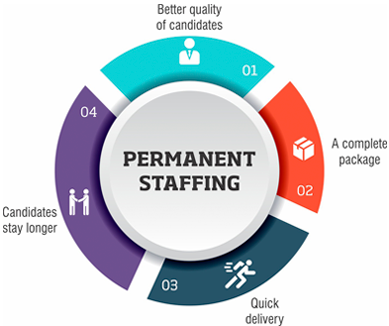Understanding Legal and Compliance Aspects in Your Outsourcing Journey
페이지 정보

본문

This post is a submission by Managed Services Partners. Managed Services Partners is an outsourcing company with over six years of experience helping services improve operations and drive development.

Embarking on the contracting out journey is a venture that many businesses undertake to improve performances, minimize costs, and leverage specialized talent.
However, alongside these prospective advantages come a host of legal and compliance complexities that should be carefully navigated to ensure the success and sustainability of contracting out efforts.
This detailed guide will check out essential legal and compliance factors to consider, with a concentrate on information privacy laws, non-disclosure contracts (NDAs), non-compete clauses, and the vital function of adaptability in today's dynamic business environment.
The outsourcing landscape
Outsourcing is more than a technique for unloading non-core jobs; it is a transformative method that can boost a business's versatility and competitiveness.
Whether it's IT services, client support, producing procedures, or personnels, outsourcing can offer a substantial edge. Companies that effectively contract out can focus on core service operations, drive development, and access top talent without the overhead expenses of full-time employment.
However, this journey is not without its legal and compliance challenges. Companies need to be mindful of the intricacies surrounding the transfer and management of information, the protection of intellectual home (IP), and the maintenance of regulatory compliance.
Given the global nature of outsourcing, companies must also consider cross-border legal implications, which may differ substantially depending on the country where the outsourcing service provider operates.
Understanding these aspects is vital in ensuring that outsourcing partnerships align with a company's tactical objectives while reducing potential legal threats.
Oftentimes, businesses that overlook legal and compliance considerations face pricey disputes, loss of delicate information, or reputational damage that can take years to recuperate from.
Importance of legal factors to consider
Outsourcing naturally includes legal factors to consider that are vital to protecting a company's interests. At the leading edge is the need to protect delicate information. Companies need to comprehend and stick to data personal privacy laws that govern the jurisdictions in which they operate.

This is especially important as data breaches can lead to serious financial penalties and reputational damage.
Furthermore, intellectual residential or commercial property rights must be plainly specified in outsourcing contracts to prevent unauthorized use or misappropriation of exclusive properties. If these rights are not appropriately established, a company may lose control over important developments or private organization processes.
For organizations running in extremely such as health care, finance, or legal services, compliance requirements are much more rigid.
Adhering to policies such as the General Data Protection Regulation (GDPR) in Europe or the Medical Insurance Portability and Accountability Act (HIPAA) in the United States is vital to preventing legal complications.
Non-Disclosure Agreements (NDAs) and non-compete provisions
When outsourcing, companies regularly share exclusive information with external provider.
To protect this important info, NDAs are utilized. These agreements are designed to avoid the unauthorized dissemination of secret information, therefore protecting the company's competitive advantage.
NDAs need to be detailed and legally binding, clearly describing what constitutes confidential information and the commitments of both parties in managing delicate information. Businesses must also make sure that their NDAs consist of arrangements for legal recourse in case of breaches.
Similarly, non-compete stipulations can be included to avoid provider from exploiting delicate knowledge gained throughout the outsourcing partnership to benefit a competitor. This is particularly important when contracting out freelancers or firms that may have multiple customers in the very same market.
However, the enforceability of non-compete stipulations can differ considerably depending on the jurisdiction. Some areas have strict guidelines limiting the scope and period of such clauses.
Therefore, it's vital for business to consult legal experts with experience in the appropriate legal frameworks to prepare effective contracts.
Contracts: Setting the structure
Contracts act as the blueprint for the contracting out collaboration, specifying roles, obligations, deliverables, and timelines. They also describe the legal and compliance expectations for both celebrations.
A well-structured agreement must address several crucial elements:
Scope of work: Clear and in-depth descriptions of the services to be offered, including quality requirements and performance metrics.
Data security: Specific stipulations related to data security, information transfer treatments, and breach alert procedures to guarantee adherence to personal privacy laws.
Intellectual Property rights: Provisions that establish ownership of IP created throughout the partnership, and terms that secure pre-existing IP.
Termination provisions: Terms that deal with the possible end of the outsourcing relationship, including notice durations and conditions under which termination can happen without penalty.
Additionally, businesses need to consider carrying out service-level contracts (SLAs) to guarantee accountability and performance tracking. SLAs specify quantifiable benchmarks that the outsourcing provider should meet, offering companies with option if expectations are not fulfilled.
Engaging with service providers
Consulting with potential service companies during the early phases of the outsourcing journey is a tactical relocation. This engagement allows business to gauge the company's capability to satisfy legal and compliance requirements.
Thorough vetting procedures, such as asking for references, evaluating past jobs, and assessing compliance certifications, can offer valuable insights into the provider's reliability and adherence to industry standards.
Businesses need to also examine the monetary stability of prospective contracting out partners.
A service provider that deals with monetary difficulties may not be able to maintain operations long-term, presenting a risk to continuous projects. Conducting due diligence beforehand can avoid future interruptions.
The function of adaptability in legal and compliance methods
Adaptability is a crucial element of effective outsourcing, particularly when it comes to navigating developing legal landscapes. Regulations and market conditions can alter rapidly, making it vital for business to remain agile.
Building versatility into contracts and developing procedures for continuous compliance monitoring can assist companies adjust to new legal requirements and keep an one-upmanship.
For instance, if a company is outsourcing consumer assistance operations to several countries, they must guarantee compliance with numerous nationwide laws regarding consumer protection and information privacy.
Regularly updating policies and agreements in action to legislative modifications can avoid legal risks.
Real-world considerations and finest practices
To ensure legal and compliance success in outsourcing, companies should embrace the following best practices:

Regular audits and assessments
Conduct periodic audits and evaluations to guarantee that service providers remain compliant with legal and regulative requirements. This proactive approach can assist recognize potential spaces before they intensify into substantial concerns.
Training and awareness
Educate staff members and outsourced groups on data security practices and legal responsibilities. This makes sure that everyone associated with the contracting out journey comprehends the value of compliance and the function they play in securing info.
Collaboration and communication
Foster a collective relationship with service suppliers. Open lines of interaction can assist resolve compliance concerns quickly and help with joint analytical efforts.
Crisis management planning
Have contingency strategies in place in case of security breaches, agreement conflicts, or company failures. A well-structured crisis management strategy makes sure that businesses can rapidly react to obstacles without considerable disturbances.
Legal compliance for outsourcing success

Understanding the legal and compliance elements of outsourcing is necessary for services looking to take advantage of external abilities while safeguarding their interests. By focusing on crucial locations such as information personal privacy, NDAs, non-compete clauses, intellectual home rights, and flexibility, companies can successfully navigate the outsourcing landscape.
Successful contracting out hinges on a collective method in between the company and its provider. Building trust and preserving transparent interaction can cause effective problem-solving and a shared dedication to compliance.

- 이전글Ищете идеальное жилье? 25.05.04
- 다음글바이낸스 셀퍼럴 최대 혜택 70% 페이백 ❤️셀퍼럴베스트❤️ 25.05.04
댓글목록
등록된 댓글이 없습니다.
